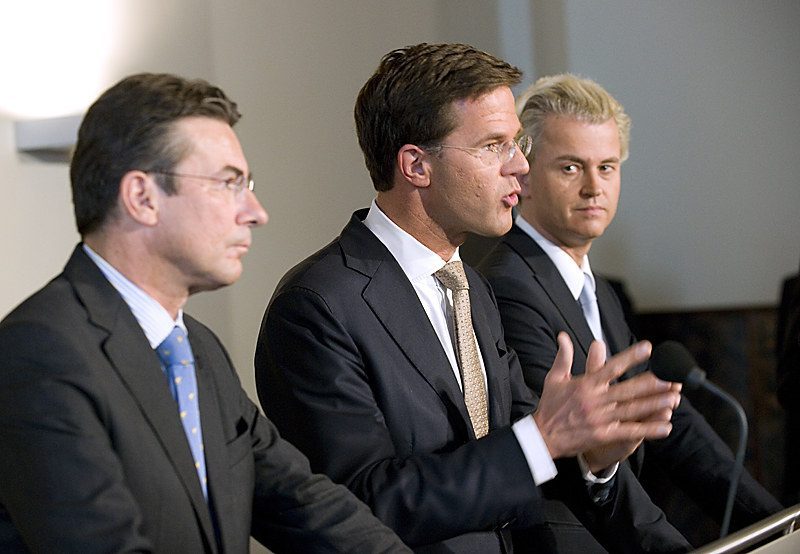The decision to postpone the trade mission comes amid ongoing anti-Arab sentiment in Dutch political discourse as the countr gears up for upcoming elections
A Dutch sports and business trade mission to Qatar has been “postponed” due to “concerns” over the mistreatment of construction workers in the country, Reuters reported on Tuesday.
The decision cited a recent report published by The Guardian that was criticised for providing misleading statistics on the number of migrant worker deaths at World Cup 2022 construction sites in the Gulf state.
Announcing the postponement, Dutch foreign ministry spokesman, Jeroen van Dommelen said The Guardian report “has led to a broad discussion in Dutch society and in parliament”, the news agency reported.
“We have talked before with Qatar about the poor conditions for these workers, but these numbers give the discussion a new meaning. We want to hear Qatar’s response before we can think of a new date for the mission,” said Van Dommelen.
Questionable timing
The virtual trade mission, held regularly between Qatar and the Netherlands for sports and business, was scheduled to take place between March 22nd and April 1st.
But a number of Dutch political parties have been urging The Hague and their King Willem-Alexander to avoid the FIFA World Cup 2022, echoing similar protest attempts since Qatar won hosting rights a decade ago.
Speaking to Doha News, Omar Salha, London-based Academic and Lecturer in International Diplomacy and Soft Power’, said that the postponement of the event “raises an interesting question on the timing of the announcement”.
“Is this purely a humanitarian position that drives the motivation behind the decision made by the Dutch government? Or is this an act of political canvassing in light of the upcoming Dutch General Election scheduled to be held on the 17th March?,” he added.
In the lead up to the elections, Dutch politicians, including the fascist anti-immigration Party for Freedom’s Geert Wilders, have geared up the anti-Muslim rhetoric.
In the most recent televised debate, Wilders blamed “Moroccan youths” for a high proportion of crime and expressed concern “over Dutch Muslims’ Sharia law over the constitution,” British reports said.
In one incident, Wilders took aim at the Dutch prime minister who he blamed for the country being “flooded with Muslims”. In 2017, Wilders also filed a lawsuit against the PM for allegedly discriminating against Dutch people in favour of immigrants. That case was dismissed the following year.
Several years earlier in 2007, Wilders also compared the Quran to Hitler’s Mein Kampf manifesto and said it should be banned.
Meanwhile, in a recent pre-election interview with Dutch News, MP Martijn van Helvert said “we need to ensure conflicts are resolved so there is no need for all these people to come to Europe. We shouldn’t wait until people are standing at our gates. Tigray is an example of that.”
The election has become “a political race showing growing popularity for anti-Muslim politician, Geert Wilders with his Islamophobic views, who has cited Islam as an ‘existential threat’ and ‘the biggest problem in the Netherlands,” said Salha.
In 2016, the Dutch Trade Union Confederation sued FIFA over the mistreatment of migrant workers in Qatar, which was rejected by the Commercial Court of Zurich in 2017 for “formal reasons”.
Yet, despite its continuous protest against Doha, the Dutch sports trade mission paid Qatar a visit in 2019, with up to 17 companies in the sports industry seeking investment deals with the host of the FIFA World Cup 2022.
More recently, Foreign Minister Stef Blok expressed his willingness to keep doors open for dialogue with Qatar after Dutch trade minister Sigrid Kaag called on the country to boycott the 2022 event.
“This coupled with conflicting messages from the Dutch Trade Minister wanting to boycott the World Cup in 2022 and the Foreign Minister preferring to keep an open dialogue with Qatar, does not make for a constructive or consonant of diplomatic trade missions at this stage,” he added.
‘Inaccurate’ report
Last week, The Guardian published a report headlined “Revealed: 6,500 migrant workers have died in Qatar as it gears up for World Cup”, implying that the deaths took place on 2022 project sites and for direct work-related causes.
“More than 6,500 migrant workers from India, Pakistan, Nepal, Bangladesh and Sri Lanka have died in Qatar” since it won the right to host the World Cup 10 years ago, the report stated.
Read also: Misleading: Critics slam ‘deceptive’ Guardian report on migrant worker deaths
However, the “deceptive” report, which failed to source official medical records explaining the circumstances of the deaths, was cited by the Dutch government as a reason to protest against Qatar’s hosting of the global sporting event.
While concerns over migrant rights in Qatar remain, Doha has taken several notable steps to address the issues, including major reforms to the country’s labour laws, becoming the first GCC country to introduce the minimum wage.
More recently, the Supreme Committee for Delivery and Legacy signed a memorandum of understanding with the National Human Rights Committee and Doha has even opened up an International Labour Organisation office in Qatar.
While the ILO and other global rights groups continue to press Qatar to do more to protext migrant workers in the country, Doha has been applauded for the major transformative measures launched since winning the bid in 2010.
“Granted the situation with worker’s conditions has been an unsettling one” Qatar has launched a huge lobbying effort to address its welfare standards,” Salha noted.
These remain high on the agenda since the introduction of a series of reforms to its labour laws in August 2020, he added.
Follow Doha News on Twitter, Instagram, Facebook and Youtube







